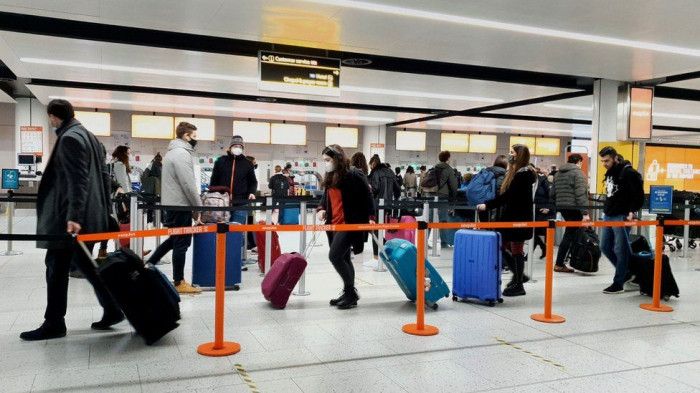India, Pakistan, Poland, Spain, Switzerland, Sweden, Russia, Jordan and Hong Kong suspended travel for Britons after Prime Minister Boris Johnson said a mutated variant of the virus had been identified in the country. Saudi Arabia, Kuwait and Oman closed their borders completely.
Several other nations blocked travel from Britain over the weekend, including France, Germany, Italy, the Netherlands, Austria, Ireland, Belgium and Canada - although experts said the strain may already be circulating in countries with less advanced detection methods than the United Kingdom.
France shut its border to arrivals of people and trucks from Britain, closing off one of the most important trade arteries with mainland Europe.
Trucks backed up for miles on the highway leading to the port of Dover, Britain’s main trade gateway with the continent and thousands of Europe-bound drivers were stranded.
“My chances of going home for Christmas are going down. It’s stupid and I am nervous and unhappy about that,” said Stanislaw Olbrich, a 55-year-old Polish trucker stuck 24 miles (40 km) north of Dover.
The discovery of the new strain, just months before vaccines are expected to be widely available, sowed new panic in a pandemic that has killed about 1.7 million people worldwide and more than 67,000 in Britain.
New York Governor Andrew Cuomo urged the U.S. government to take steps to prevent the variant entering the United States, which has been worst hit by COVID-19 with almost 318,000 deaths.
“It’s high time the federal government takes swift action, because today that variant is getting on a plane and landing in JFK, and all it takes is one person,” he said.
British Airways agreed to allow only passengers who test negative for the coronavirus to fly to New York’s John F. Kennedy International Airport, he said.
U.S. Assistant Health Secretary Brett Giroir said nothing had yet been decided on any travel ban.
European officials met via video link to coordinate their response to the new strain. The EU is on course to start vaccinations within a week after its medicines regulator approved the use of a shot from Pfizer and BioNTech on Monday.
Experts said there was no evidence that vaccines would not protect against this variant but they were working around the clock to determine whether the mutations would affect how well the shots guarded against infection.
The UK government’s chief scientific adviser, Patrick Vallance, said tighter restrictions on public life in Britain were likely.
“I will say that the evidence on this virus is it spreads easily, it’s more transmissible, we absolutely need to make sure we’ve got the right level of restrictions in place,” Vallance told a news conference hosted by Johnson.
“And I think it’s likely therefore that measures need to need to be increased in some places in due course, not reduced.”
More about: #Britain
















































